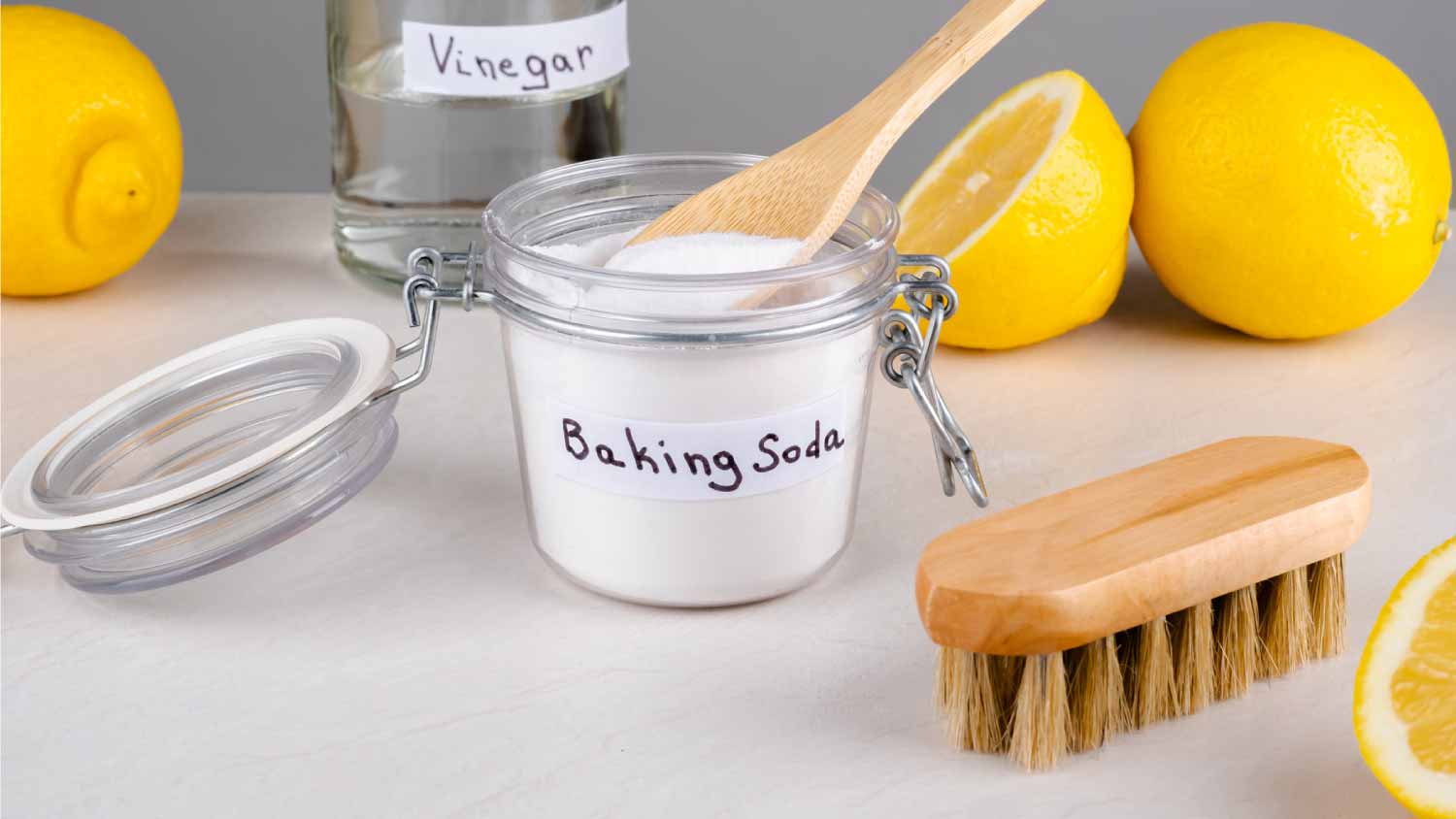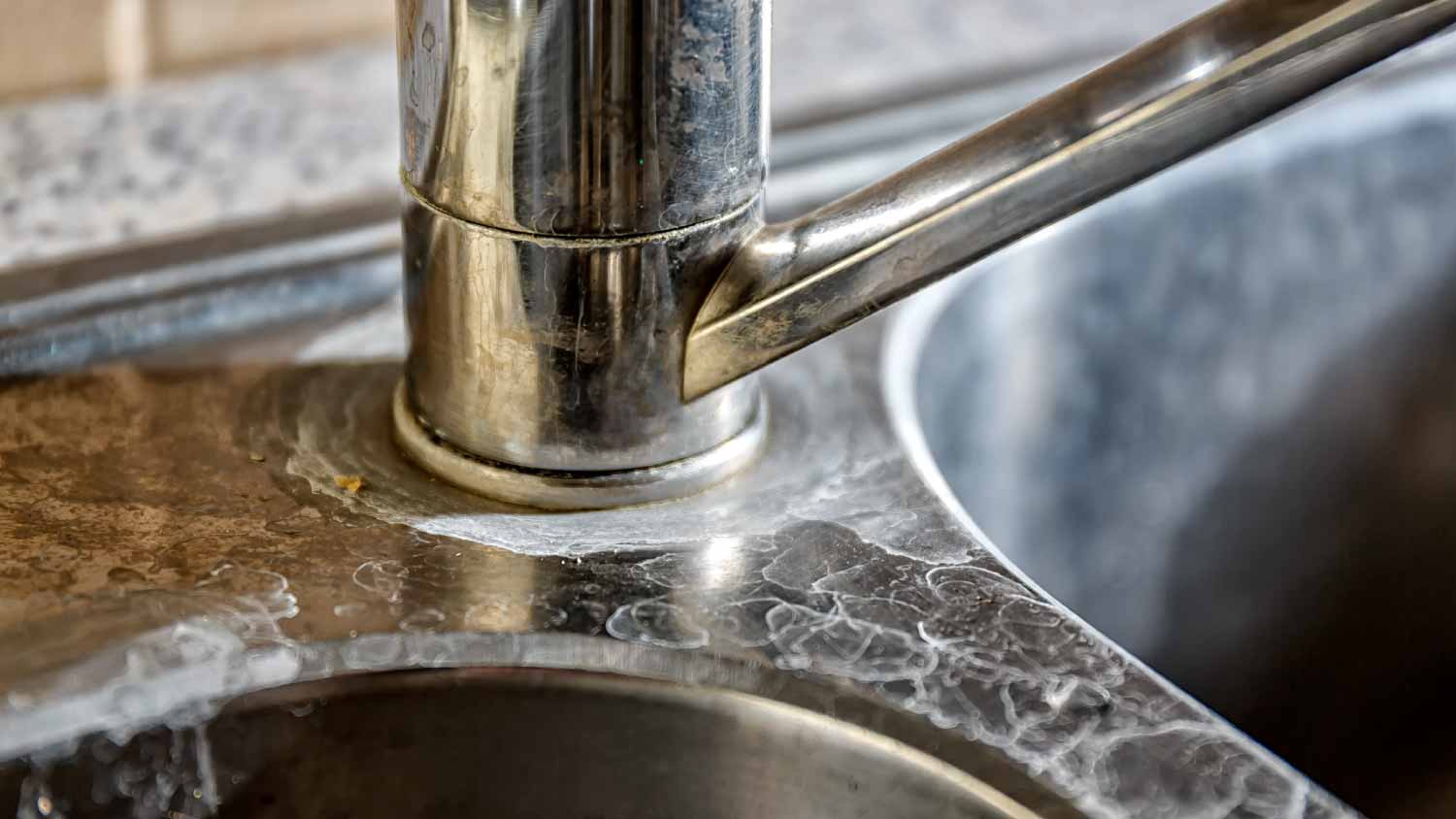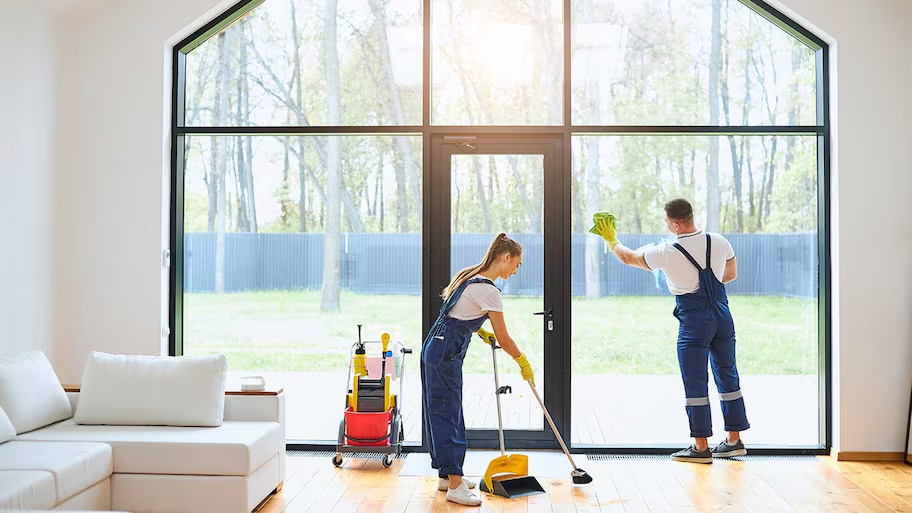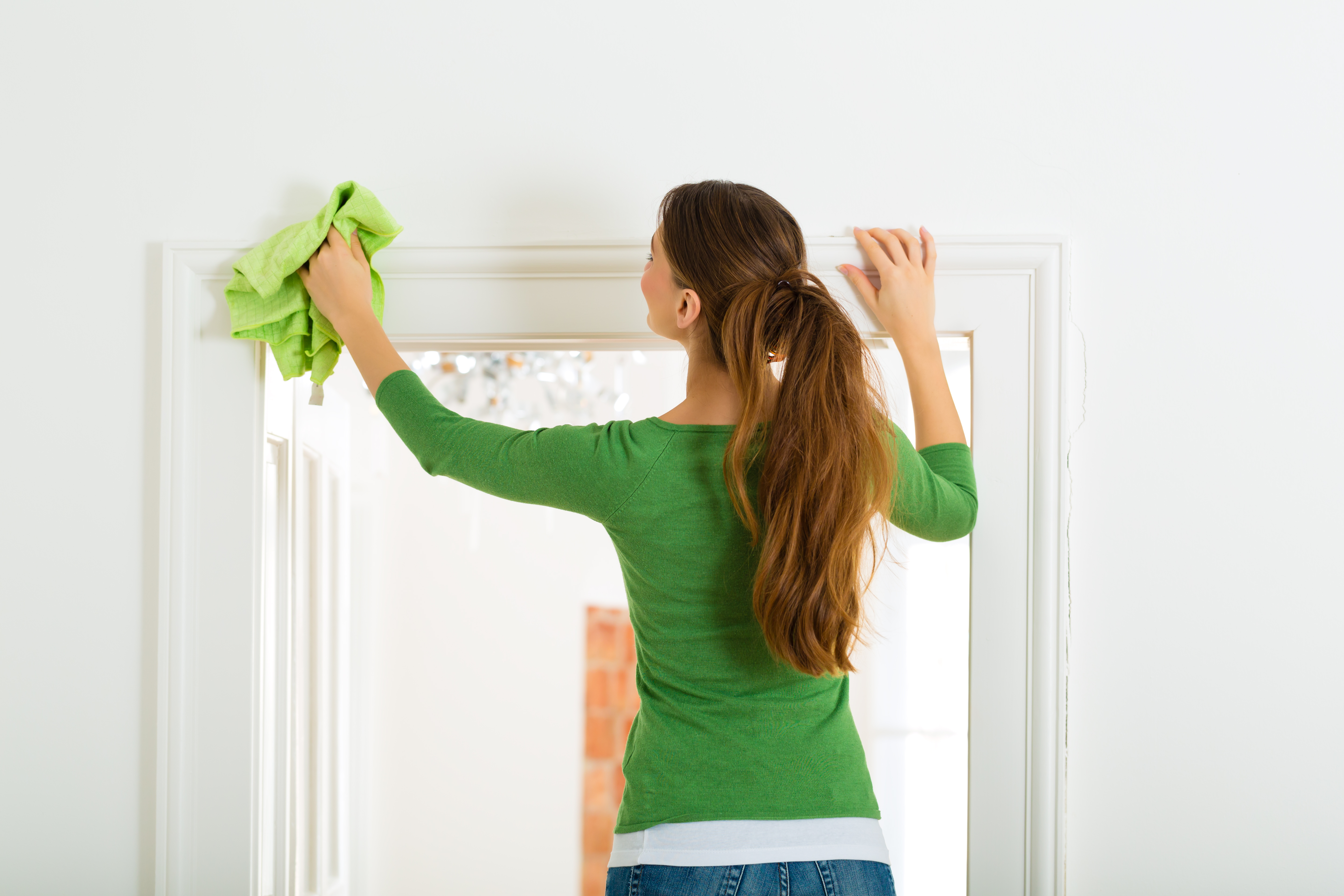
Tile and grout cleaning brings your tiled rooms back to life. In this guide, find out the details of how much it costs to hire tile and grout cleaners.
The water may be hard, but removing the stains doesn’t have to be


Hard water can make its mark across different parts of your house, leaving chalky or rusty residue on your dishes, in your sinks, and in your bathrooms. Fortunately, though, you can learn how to remove hard water stains in a few simple steps using products you might already have at home.

You can use a mix of water and vinegar to remove hard water stains from glass, including shower doors, mirrors, and glassware. Here’s how:
Mix equal parts water and distilled white vinegar into an empty spray bottle.
Spray the mixture onto the stains, then let it sit for 30 minutes.
Gently scrub the stains with a soft microfiber cloth or sponge in a circular motion.
Rinse the glass with clean water, then dry it with a microfiber cloth or squeegee.
If any stains remain, create a paste with three parts baking soda and one part water. Mix it until it has a toothpaste-like consistency, then set it aside.
Spray the vinegar solution onto the stains again. Leave it for 30 minutes.
Using your cloth or sponge, apply the baking soda paste in circular motions. Leave it to dry fully (this should take 10 minutes).
Spray the vinegar solution again, then let it sit for a few minutes. Scrub everything away using your cloth or sponge.
Rinse the glass with clean water. Dry it with a cloth or squeegee.
Vinegar and baking soda are often all you need to get hard water stains out of a porcelain toilet bowl. Here’s the process:
Flush the toilet and put on a pair of rubber gloves.
Pour 2 cups of distilled white vinegar into your toilet bowl, making sure to cover all hard water stains.
Use a toilet brush to stir the vinegar into your toilet water and let it sit for five minutes.
Add 1 cup of baking soda, then another 1 to 2 cups of vinegar. Once the mixture starts fizzling, leave it for 10 minutes.
With a toilet brush, scrub the bowl and cover every stain with the mixture of baking soda and vinegar.
Let the solution sit for 30 minutes, then scrub and flush the toilet.
Stainless steel sinks and appliances are other common places where stains appear. If you need to learn how to remove hard water stains from stainless steel, try these tips:
Add a small squirt of mild soap to 1 cup of water. Use a non-abrasive sponge to scrub your sink with this solution, then rinse with clean water.
Pour equal parts water and distilled white vinegar into a spray bottle. Alternatively, you can use water and lemon juice.
Spray the solution onto the steel, then let it sit for 15 minutes. Gently work at the stains with a non-abrasive sponge, making sure to go with the grain of the steel.
Wipe the steel down with a soft microfiber cloth or sponge.
If there are still stains, sprinkle a generous amount of baking soda on top of them.
Use your cloth or sponge to scrub away the stains.
Rinse the baking soda with clean water, then dry the steel with a dry microfiber cloth.
If you’re trying to spruce up your stained granite countertops, floors, or shower walls, steer clear of vinegar, lemon juice, and other acidic cleaning solutions. Instead, you can follow these steps to remove hard water stains from granite:
Soak up any standing water with a dry cloth.
Create a paste by combining one part water and three parts baking soda.
Use a soft-bristled brush to scrub away the stains. Rinse the granite with clean water, then dry it with a cloth.
If that doesn’t work, apply a layer of the paste on top of each stain and cover them with plastic wrap. Tape down the plastic wrap with painter’s tape, then leave it for 24 hours.
Pull off the plastic wrap and wipe off the paste with a damp cloth.
Rinse the granite with mild soap and water, then dry it with a cloth.
In many cases, removing hard water stains is a quick afternoon project that doesn’t require any specialized tools or supplies. However, if you don’t feel like tackling it yourself, you can always call in an expert. Plus, a small error in the cleaning process, say, accidentally using lemon juice on granite, could cause a lot more damage than a small stain. On average, professional house cleaners charge between $25 and $80 per hour for their services.
If you’re looking for ways to prevent hard water stains, think about installing a water softener. Water softeners remove minerals and contaminants from your water, making it softer, cleaner, and less likely to leave stains. They cost between $200 and $6,000, depending on the type of system and size of your house, but you can reach out to a local water softener installation company for more specific pricing information.
A water softener can help increase the life span of your plumbing, your water heater, and even your clothing.

The term “hard water” refers to water with a high concentration of minerals (specifically, calcium and magnesium). Water becomes hard when it absorbs minerals from rocks and soil, so if you live in an area with lots of mineral deposits, you’re more likely to have hard water. According to the U.S. Geological Survey (USGS), hard water is widespread across much of the Southwest and Rocky Mountains, but it’s also present in the Midwest and other parts of the country.
Hard water isn’t harmful to your health, but it can lead to skin irritation, dry hair, higher water bills, stains, and other issues. Fortunately, there are options for treating hard water, including lowering your water temperature and installing a water softener.

Not sure whether you have hard or soft water? It’s hard to tell just by looking at it, but you can keep an eye out for these common signs of hard water:
White residue on your dishes and silverware
Scale deposits around the water fixtures in your kitchen and bathrooms
Backed-up pipes and plumbing problems
Clothing that’s stiff, rough, or faded after washing
Dry or itchy skin
Dull or damaged hair
From average costs to expert advice, get all the answers you need to get your job done.

Tile and grout cleaning brings your tiled rooms back to life. In this guide, find out the details of how much it costs to hire tile and grout cleaners.

Mattress cleaning cost depends on the number of mattresses being cleaned and the size of each. Use this guide to better understand mattress cleaning prices.

Hiring a house cleaner frees up your schedule and keeps your home spotless. The cost to hire a house cleaner depends on the size of your house, your schedule, and who you hire. Use this guide to understand typical house cleaning prices better.

Curious how much it costs to hire a housekeeper? Discover 2025 prices, key cost factors, and tips to save on professional housekeeping for your home.

Remodeling projects create a lot of dirt and debris that can end up all over your home. Even the smallest remodels can leave a big mess in their wake, so follow these nine tips to keep your home as clean as possible during a remodel.

Protect your most precious furniture by learning how to clean antique wood the right way. Best of all? It's not as tricky as you may think.